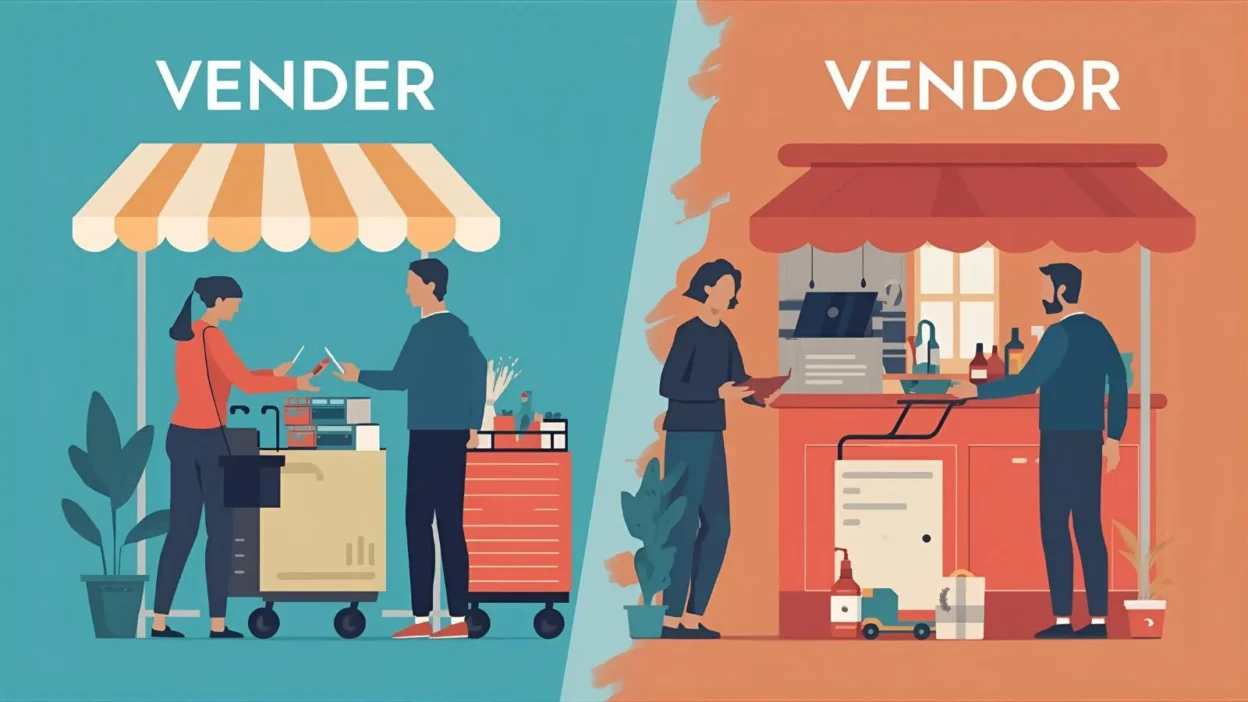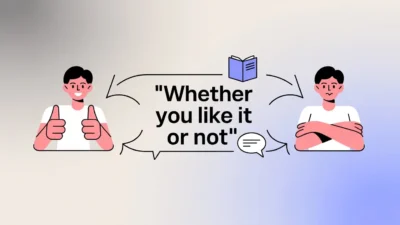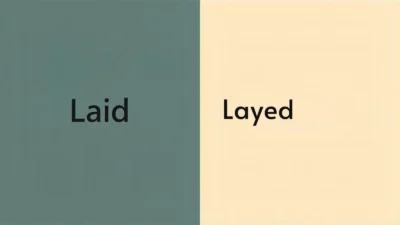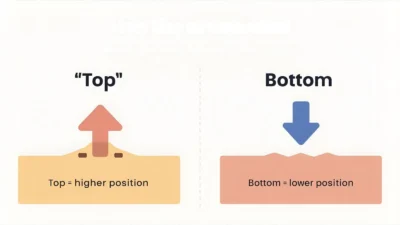Ever wondered whether it’s “vender” or “vendor”? You’re not alone—this small spelling choice confuses many writers, students, and professionals aiming to sound polished and accurate.
If you write business emails or online content, getting it right matters.
In this quick guide, I’ll show you the clear difference between the two and which one you should always use for professional writing.
🧾 Vender vs Vendor – Quick Answer
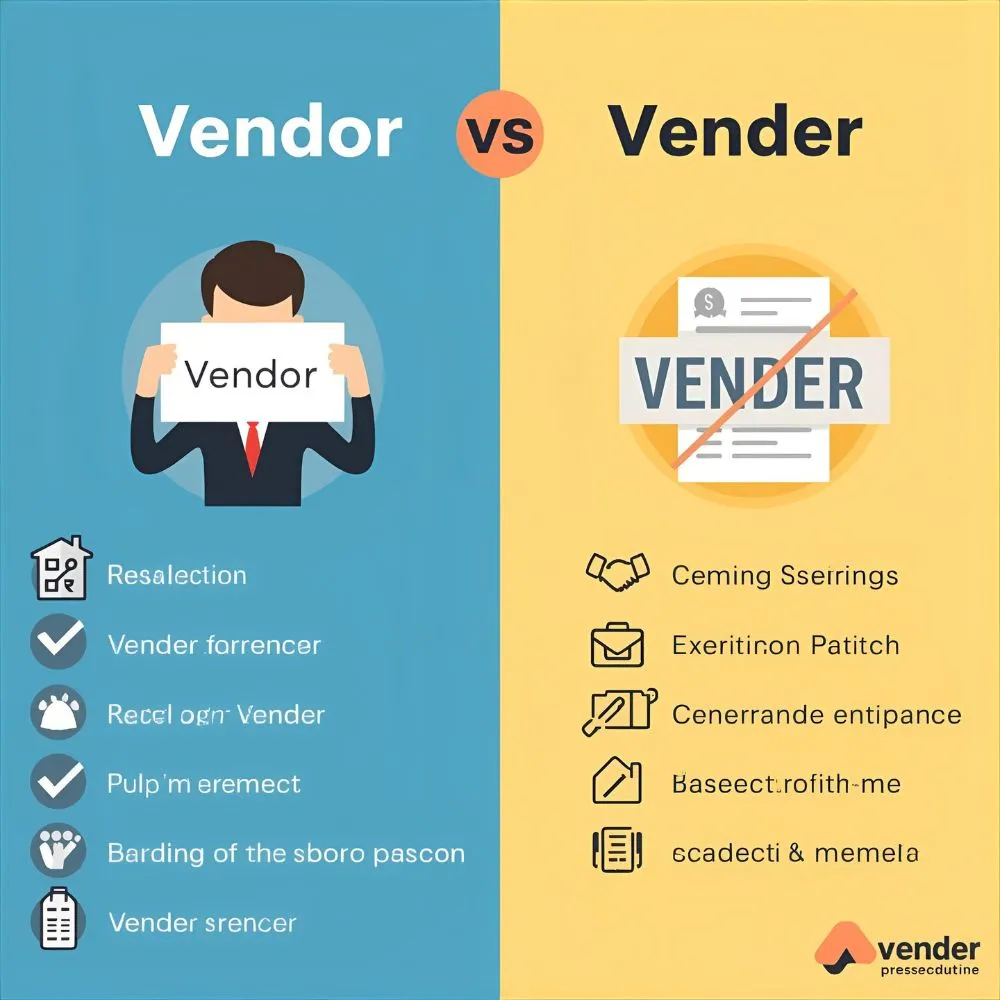
The correct modern spelling is “vendor.”
✅ Example: We hired a food vendor for the festival.
❌ Incorrect: We hired a food vender for the festival.
“Vender” is an old or rare spelling. Today, it is mostly considered a mistake in both American and British English.
📜 The Origin of Vender or Vendor
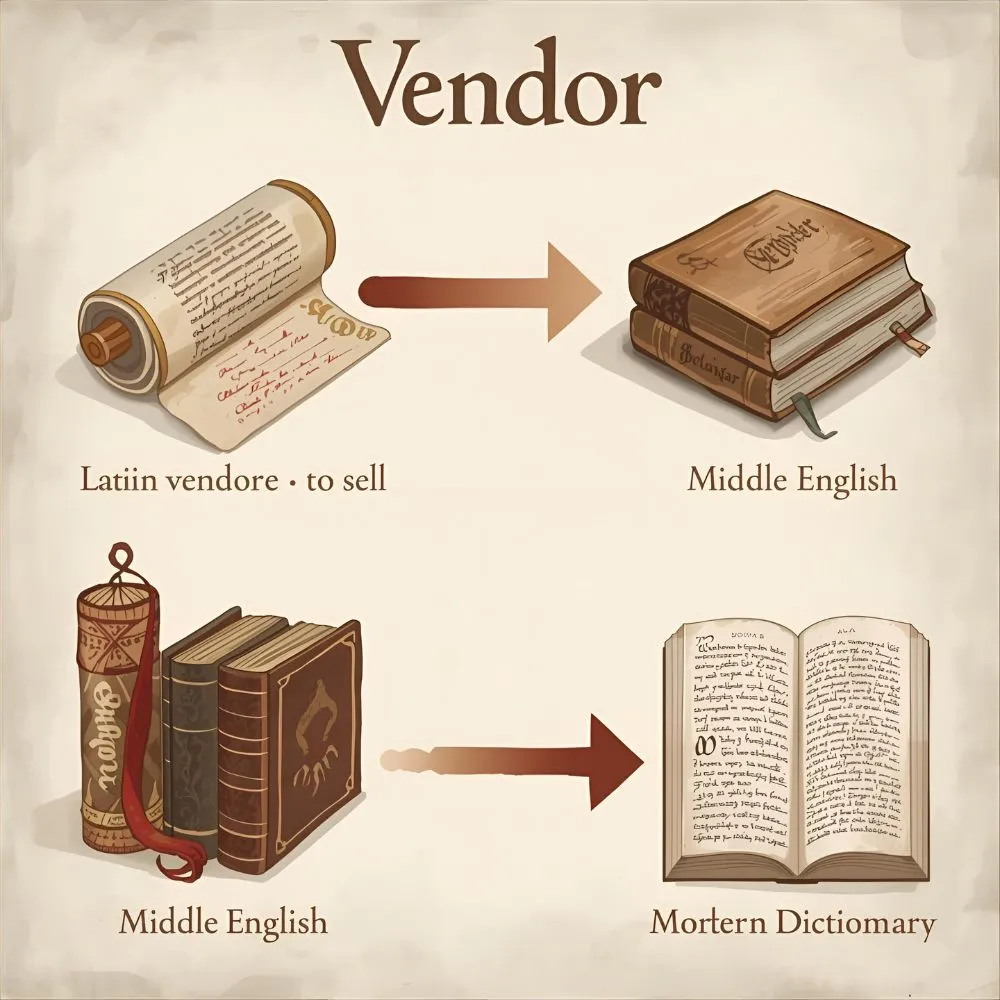
Both spellings come from the Latin word vendere, meaning “to sell.”
- Vender: This older spelling appeared in Middle English.
- Vendor: Standardized spelling that became dominant by the 19th century.
The shift happened because English borrowed heavily from French and Latin, where “-or” endings were common. Over time, dictionaries and style guides favored “vendor.”
🇬🇧🇺🇸 British English vs American English Spelling
In both British and American English, vendor is the correct and accepted form. Unlike words such as colour/color or travelled/traveled, there’s no regional divide here.
| Variant | Accepted in UK | Accepted in US | Notes |
|---|---|---|---|
| Vendor | ✅ Yes | ✅ Yes | Standard spelling everywhere |
| Vender | ❌ Rare | ❌ Rare | Considered outdated or wrong |
🖋️ Which Spelling Should You Use?
If you’re writing in the US → Use vendor.
If you’re writing in the UK or Commonwealth → Use vendor.
If you’re writing for a global audience → Always use vendor.
Unless you’re quoting a historical text, avoid “vender.”
⚠️ Common Mistakes with Vender or Vendor

- Using “vender” in business documents – lowers credibility.
- Thinking “vender” is British spelling – false, both regions use “vendor.”
- Mixing “vendor” with “vendee” – vendor = seller, vendee = buyer.
✅ Correct Example: The software vendor provided free updates.
💬 Vendor or Vender in Everyday Examples
- Email: “Please contact the vendor for payment details.”
- News: “Local vendors set up stalls at the fair.”
- Social Media: “Shoutout to the amazing food vendor at the market today!”
- Formal Writing: “The contract binds the vendor to supply goods on time.”
“Vender” almost never appears in modern communication. This is everyday use of “vendor vs vender”.
Tomatoes or Tomatos – The Correct Spelling Explained with examples in 2025
📊 Vender or Vendor – Google Trends & Usage Data
Search data confirms “vendor” dominates worldwide.
| Term | Popularity (Global) | Countries Where Common | Status |
|---|---|---|---|
| Vendor | 98% | US, UK, Canada, India | Standard spelling |
| Vender | 2% | Rare in Spain/Latin America (in Spanish, “vender” means “to sell”) | Outdated in English |
This shows why people see “vender” online—it’s correct in Spanish, but not in English.
Make Due or Make Do: Easy Grammar Guide with Examples
FAQs About Vendor or Vender
Q1. Is vender correct in English?
👉 No, “vendor” is the correct English spelling.
Q2. Why do some texts use vender?
👉 It’s an old spelling or a Spanish word meaning “to sell.”
Q3. Is vender British spelling?
👉 No, both British and American English use “vendor.”
Q4. Can I use vender in business writing?
👉 No, it looks unprofessional. Use “vendor.”
Q5. What’s the plural of vendor?
👉 The plural is vendors.
Q6. What’s the opposite of vendor?
👉 The opposite is vendee (buyer).
Q7. Do dictionaries still list vender?
👉 Yes, but usually as an archaic or rare spelling.
Q8. Is it vendor or vender?
The correct spelling is “vendor”, while “vender” is a less common or outdated form.
✅ Conclusion
When it comes to “vender or vendor,” the clear winner is vendor. It is the standard spelling in both American and British English, used in contracts, news, and everyday communication.
“Vender” is an outdated form and should be avoided in professional writing unless you are quoting historical text.
Remember:
- Vendor = seller (modern, correct).
- Vender = old spelling or Spanish verb.
By always using “vendor,” you’ll ensure your writing is professional, correct, and globally understood. Spelling may seem small, but accuracy builds trust—especially in business and formal communication.

I’m Emma Collins, a grammar expert and author at Grammarnestly.com. I love helping readers master English with simple, practical grammar guides.
When I’m not writing, I enjoy reading, coffee, and exploring the beauty of language.
